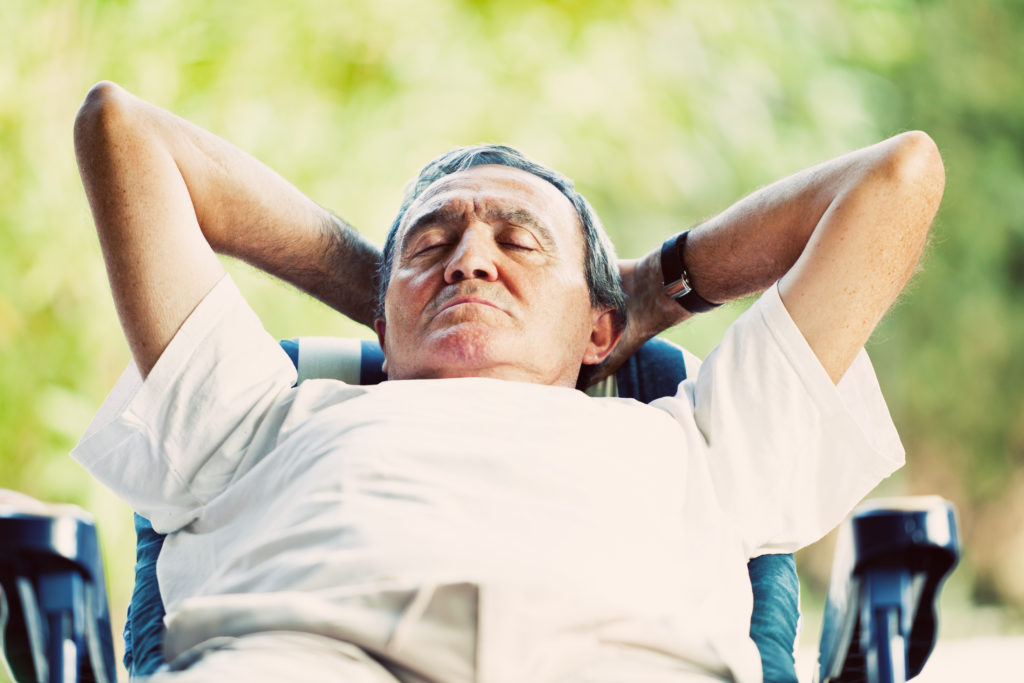Quick Hits
Daily brief research updates from the cognitive sciences
 Who wouldn’t like a daily siesta – especially when it is hot after that post lunch period! And I am sure we have all experienced that desire to sleep when it gets warmer – it pushes us to laze around.
Who wouldn’t like a daily siesta – especially when it is hot after that post lunch period! And I am sure we have all experienced that desire to sleep when it gets warmer – it pushes us to laze around.
Now we may think this is just about activity, but a group of researchers at Northwestern University in the US have peered deeper into the brain to try to find out what is happening. To do this Alpert et al. looked into the brains of fruits flies. Yes, fruit flies. You may not know this but fruit fly brains are commonly used for brain research – their brains are simple – so easier to research, easy to breed, and none of those pesky ethical limitations.
Of note is also that fruit flies have developed all over the world and are attracted to the same temperatures as human beings. They actually seem to have developed to cohabitate with human beings. And this is not the only similarity: they also seem to get dozy under similar conditions when the temperature rises post lunch.
And what did these researchers find?
Well, they managed to identify a circuit in the brain that is a heat circuit and, interestingly this is separate to another cold circuit (so not just one temperature circuit). This suggests that the circuits have distinct functions. They also think they’ve found the spot in the fly brain where these are integrated and therefore impact behaviour. This shows there is separate heat circuit in the brain that directly impacts behaviour and in our case it triggers sleepiness – and not through fatigue which is the normal process.
So, that afternoon nap on a hot day is not your imagination, it is your heat circuit in your brain activating your sleep circuits. And the research shows that an afternoon nap can be very beneficial – so maybe you shouldn’t resist!

Andy Habermacher
Andy is author of leading brains Review, Neuroleadership, and multiple other books. He has been intensively involved in writing and research into neuroleadership and is considered one of Europe’s leading experts. He is also a well-known public speaker, speaking on the brain and human behaviour.
Andy is also a masters athlete (middle distance running) and competes regularly at international competitions (and holds a few national records in his age category).
Reference
Michael H. Alpert, Hamin Gil, Alessia Para, Marco Gallio.
A thermometer circuit for hot temperature adjusts Drosophila behavior to persistent heat.
Current Biology, 2022
DOI: 10.1016/j.cub.2022.07.060
More Quick Hits
When Cognitive Games Do Make You Smarter
Quick HitsDaily brief research updates from the cognitive sciences ognitive games have been around for many years now – the first wave of popularity came with Nintendo’s “brain jogging” almost two decades ago now. These games have claimed that they...
How Walking Makes Some People “Super Taskers”
Quick HitsDaily brief research updates from the cognitive sciences hose of you who have followed my writing will know that I have reported regularly on the amazing benefits of exercise and walking on the brain, body, and cognition. However, though...
Older People are Better at Responding to Distress
Quick HitsDaily brief research updates from the cognitive sciences e may have some cliched ideas of older people like the grumpy or angry old man, or woman (but it is often a man). However, research continually shows the opposite. Namely that...
Guided Play Highly Effective for Learning in Children
Quick HitsDaily brief research updates from the cognitive sciences ood news for some and bad news for traditionalists in education. Some believe that starting education early and using classical and traditional learning activities is the best way...
Childhood Fitness Improves Mid-Life Cognition
Quick HitsDaily brief research updates from the cognitive sciences always find these long-term studies fascinating. Imagine launching study and not knowing what the outcomes will be for another 30 years! This is precisely what this study did. It...
The Truth of “Work Hard, Play Hard”
Quick HitsDaily brief research updates from the cognitive sciences e all know the phrase “work hard, play hard” and this drew my attention when I stumbled across some research actually looking into this - and whether this is a good thing or bad...






